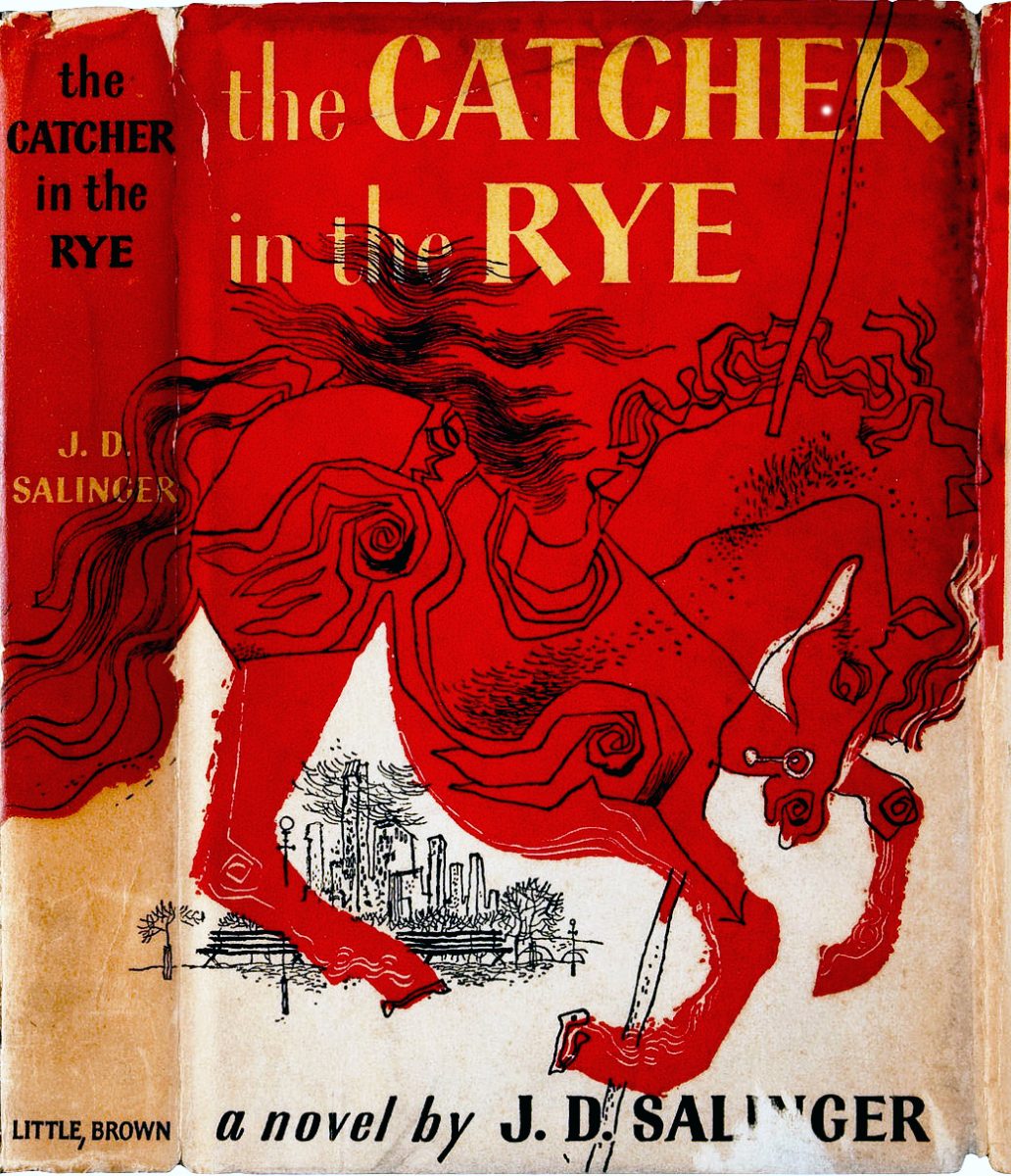From early works of “Three Early Stories” and “A Perfect Day for Bananafish”, J.D. Salinger finally created his literary classic of “Catcher in the Rye” in 1951.
In “Catcher in the Rye,” Holden Caulfield is kicked out of Pencey Prep after being a poor student. Before he leaves, he fights his roommate, Stradlater, because Stradlater has a date with Caulfield’s crush, Jane Gallagher. Caulfield leaves and begins roaming around New York with the little money he has. Caulfield enters a hotel and gets a prostitute from an elevator boy. He only talks to the prostitute and pays her the amount agreed upon with the elevator boy, but the prostitute believes he is skimping out on her. Later that night, the elevator boy and the prostitute beat and rob Caulfield. After this, Caulfield goes out on a date with an old friend Sally Hemmings and deeply upsets her with his drunken rant on running away together. Caulfield longs for his sister, Phoebe, who he adores, and so he breaks into his family’s home and talks with her for the night just to not be lonely. Out of money, Caulfield stays with his former teacher Mr. Anatoli for the night who explains that his path in life right now was dark, and he needed to change.
The story is phenomenal. It shows how difficult life can be for someone struggling through mental issues and difficult events. Caulfield’s resilience to the depressing events that occur to him is influential. He never lets the events get to his head.
The troubling and saddening plot of the story makes it a great read. The difficult events that Holden Caulfield goes through make readers feel sympathetic toward him. The characters such as Allie, Phoebe, and Mr. Anatoli cause the readers to feel even worse for Caulfield. Caulfield’s background events are also entertaining and unique such as his story about a classmate committing suicide by jumping out of the window at Pencey Prep.
The events feel erratic and random. There does not seem to be a connection to the order of the events. It appears like one could change the order of the events in the novel, and the novel would be as enjoyable as it is now. But the biggest gripe of the novel is that as one reads the novel, they feel worse and worse for Caulfield, but his constant pessimistic and hateful attitude makes him dislikeable. He constantly calls everything “lousy” and “phony.” This constant disapproval and judging of others illustrate his deep insecurities that make the novel annoying to read at points.
Salinger should have had more of a backstory of why Caulfield fears his parents so much. I do not understand why he would rather be homeless essentially instead of staying in his parents’ home. I give the book 4.5 out of 5 stars because it is a great book, but Caulfield’s actions and beliefs do get annoying in points. I love that the reader can sympathize with Caulfield, but the events in the novel feel random and sporadic, which is annoying. Overall, it is an amazing book that everyone should give a read.






